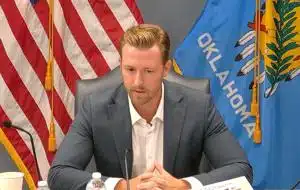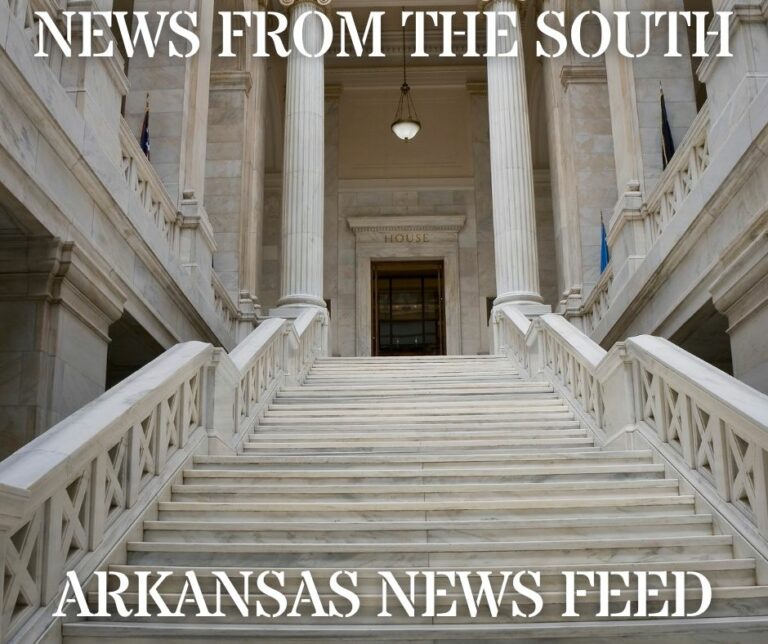News from the South - Tennessee News Feed
Scammers targeting millions of student loan borrowers
SUMMARY: Millions of federal student loan borrowers are being targeted by scammers, especially after collections resumed April 21. Reporter Aaron Velasquez, a former student, has received over 20 scam calls impersonating federal agencies like the IRS, using official logos and advanced AI technology to sound convincing. With over 42 million borrowers and $3 trillion in loans, scammers see a huge opportunity. Experts advise blocking suspicious calls and dealing directly with loan providers to avoid falling victim. Families should warn loved ones with loans about these scams, as even a small success rate could harm hundreds of thousands of people.
If you are one of the millions of people who have federal student loans, you may be the target of scammers trying to get their hands on the money you owe.
News from the South - Tennessee News Feed
Tennessee lawmakers respond to Trump’s push to eliminate mail-in ballots
SUMMARY: President Donald Trump is advocating to ban mail-in ballots and voting machines, claiming without evidence that mail-in voting leads to fraud. He urges Republicans to support a shift to paper ballots only, aiming to sign an executive order before the 2026 midterms. Tennessee Republicans, including Sen. Joey Hensley and Rep. Tim Rudd, back Trump, citing election security and strict absentee ballot rules requiring valid reasons. Conversely, Democrats like Rep. John Ray Clemmons argue the plan undermines democracy and voter rights, noting Tennessee’s low voter turnout results from restrictive laws. The U.S. Constitution allows states to set election rules, but Congress can intervene.
Read the full article
The post Tennessee lawmakers respond to Trump's push to eliminate mail-in ballots appeared first on www.wkrn.com
News from the South - Tennessee News Feed
Tennessee National Guard to join D.C. police order
by Sam Stockard, Tennessee Lookout
August 19, 2025
Tennessee Gov. Bill Lee is dispatching National Guard troops to Washington, D.C., this week to join the president’s law enforcement takeover in the nation’s capital.
Acting on orders from President Donald Trump, the governor granted a request to help the District of Columbia National Guard with a “security mission,” spokesperson Elizabeth Johnson said.
Tennessee will join several other Republican-controlled states and send 160 Guard troops this week to D.C. “to assist as long as needed,” according to Johnson. They will work with local and federal law enforcement agencies on monument security, community safety patrols, federal facilities protection and traffic control, she said.
The Tennessee Guard deployment will be funded and regulated by the federal government.
At least four other Republican governors are sending nearly 1,000 National Guard troops to D.C. after Trump activated 800 D.C. soldiers.
Trump ordered the federal takeover of Washington, D.C., law enforcement despite opposition from local officials who said crime is down some 30%.
Following a legal challenge by D.C. officials, the Trump administration backed off appointing a federal official to head the department and agreed to leave the city’s police chief in command. U.S. Attorney General Pam Bondi, though, told local police to work with federal officers on immigration enforcement even if city laws are conflicting.
Lee also said he would deploy National Guard troops to provide logistical help with Immigration and Customs Enforcement officers in Tennessee so they can spend more time on deportation.
Democratic state Rep. John Ray Clemmons of Nashville accused the governor of “uprooting” Guard personnel from their families to distract people from Trump’s “refusal to release the Epstein files,” a reference to the Jeffrey Epstein sex trafficking investigation and whether Trump is mentioned in the documents.
Clemmons pointed out violent crime in D.C. decreased by 26% this year while overall crime is down by 7%.
“If Trump was serious about addressing crime in D.C., all he and Congress have to do is better support and fund D.C. police, as they have the power to do, rather than militarize one of the most beautiful cities in America,” Clemmons said.
YOU MAKE OUR WORK POSSIBLE.
Tennessee Lookout is part of States Newsroom, a nonprofit news network supported by grants and a coalition of donors as a 501c(3) public charity. Tennessee Lookout maintains editorial independence. Contact Editor Holly McCall for questions: info@tennesseelookout.com.
The post Tennessee National Guard to join D.C. police order appeared first on tennesseelookout.com
Note: The following A.I. based commentary is not part of the original article, reproduced above, but is offered in the hopes that it will promote greater media literacy and critical thinking, by making any potential bias more visible to the reader –Staff Editor.
Political Bias Rating: Left-Leaning
The content presents a critical view of Republican actions, particularly focusing on Tennessee Governor Bill Lee and former President Donald Trump’s deployment of the National Guard to Washington, D.C. It emphasizes opposition from Democratic officials and highlights concerns about militarization and distraction from other issues. The article’s framing and choice of quotes suggest a perspective that leans toward the left side of the political spectrum, critiquing conservative policies and leadership decisions.
News from the South - Tennessee News Feed
Survey shows Tennessee teachers’ feelings about cell phones, disciplinary measures and school culture
SUMMARY: A recent Tennessee Education Survey of nearly 40,000 teachers reveals most middle and high school teachers find cellphone use disruptive, with 73% reporting cheating via phones. While 94% say schools restrict phone use during class, half of high school teachers want a full campus ban. A new state law bans wireless devices during instruction but lets districts set specific rules. Teacher retention is driven mainly by school culture, despite only a third being satisfied with pay. Most teachers support current discipline methods and evaluations, with early-career teachers spending more time on discipline but generally satisfied with evaluations improving their teaching.
Read the full article
The post Survey shows Tennessee teachers’ feelings about cell phones, disciplinary measures and school culture appeared first on wpln.org
-
News from the South - Tennessee News Feed5 days ago
GRAPHIC VIDEO WARNING: Man shot several times at point-blank range outside Memphis convenience store
-
News from the South - Texas News Feed5 days ago
Kratom poisoning calls climb in Texas
-
News from the South - Texas News Feed2 days ago
New Texas laws go into effect as school year starts
-
News from the South - Florida News Feed2 days ago
Floridians lose tens of millions to romance scams
-
News from the South - Kentucky News Feed5 days ago
Unsealed warrant reveals IRS claims of millions in unreported sales at Central Kentucky restaurants
-
News from the South - Arkansas News Feed7 days ago
Idaho is losing OB-GYNs. Doctors who remain are trying to shoulder the extra burdens.
-
Mississippi Today5 days ago
‘Get a life,’ Sen. Roger Wicker says of constituents
-
News from the South - Georgia News Feed7 days ago
Cold case murder solved: Nicole Alston’s murder | FOX 5 News













































